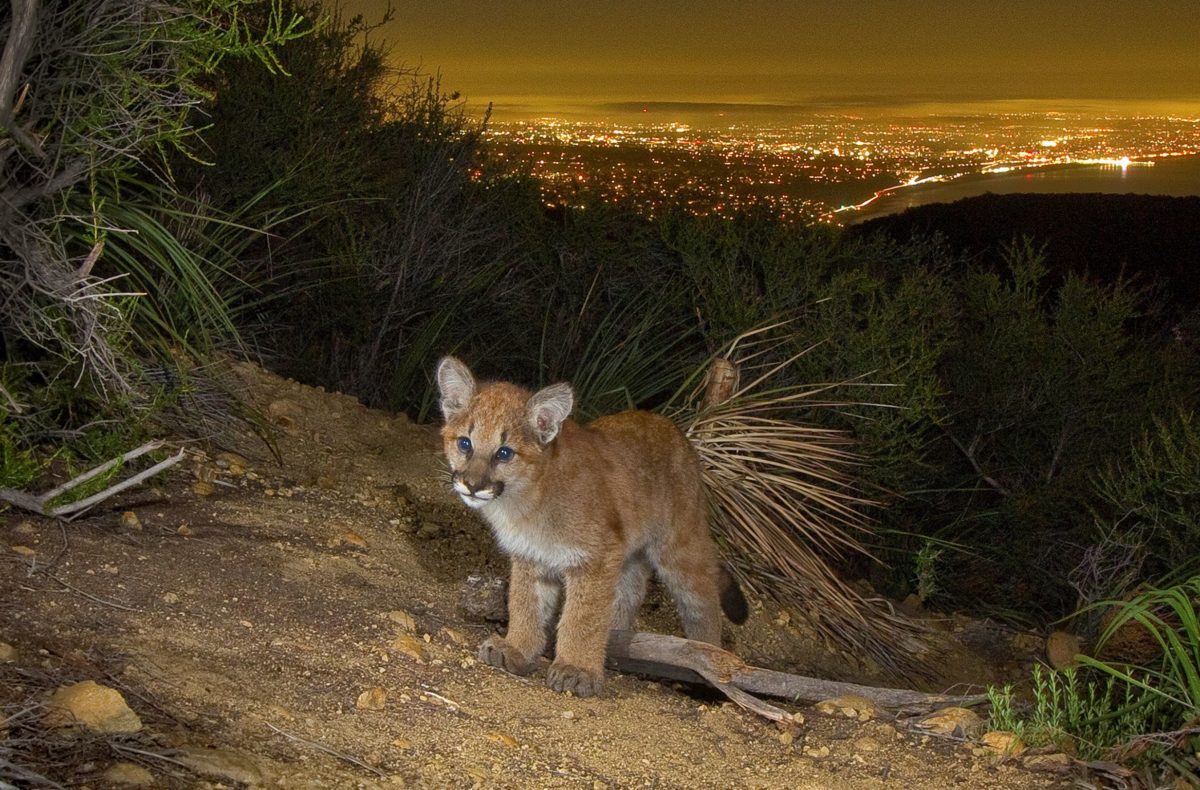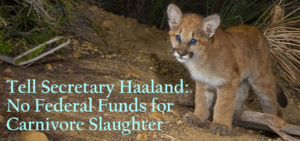
For Immediate Release: Monday, September 27, 2021
Contact:
Debra Chase, CEO, Mountain Lion Foundation
DChase@mountainlion.org
916-442-2666 ext. 103
End Federal Subsidies for States’ War on Carnivores
Move to Disqualify States from Federal Aid for Excessive Killing
Sacramento, CA —State game agencies could lose a substantial portion of their budgets for eradicating populations of mountain lions and other carnivores under a proposal put forward by the a coalition including the Global Indigenous Council (GIC), Public Employees for Environmental Responsibility (PEER), the Center for Biological Diversity, Mountain Lion Foundation, and a coalition of 25 Native American, conservation, and animal welfare organizations. The plan would deny federal wildlife management funding to states that excessively target wolves, cougars, bears, and other carnivores.
“In the midst of the sixth great extinction, we can no longer shut our eyes or run away from the problems our natural world is experiencing,” says Debra Chase, CEO of the Mountain Lion Foundation. “We need decisive action now to modernize the Pittman-Robertson Act and state agencies’ handling of mountain lions and other carnivores. It’s unethical and immoral for states to profit from the exploitation and extinction of our wildlife. If Secretary Haaland acts on our petition, this new rule will hold states accountable to the public they serve and the wildlife they are committed to protect when they ignore sound science and seek to profit by inflating population count and undercounting killings of our carnivores.”
Since the removal of federal Endangered Species Act protections for gray wolves, states across the country have expanded controversial carnivore control programs that have long also been used against mountain lions, including trophy hunting, hunting contests, and trapping, without regard for maintaining sustainable populations or the integrity of ecosystems.
The coalition’s rule-making petition calls on Secretary of Interior Deb Haaland to adopt regulations making states ineligible to receive grants under the Pittman-Robertson Federal Aid in Wildlife Restoration and Sport Fish Restoration Acts if they allow hunting and trapping at levels that compromise healthy populations of wildlife, including carnivores. That condition is currently required under law but without an enforcement mechanism – a hole this petition would fill.
Under this proposal, Secretary Haaland, following public comment, would decide if a state applying for a federal grant is pursuing wildlife management practices inconsistent with the national goal of naturally diverse wildlife populations and healthy predator-prey dynamics.
This federal aid constitutes a significant portion of state game agency budgets across the country. This year, approximately $1 billion in federal aid was funneled to state game agency coffers.
The petition is a reaction to recent actions in states such as Alaska, Idaho, Montana, and Wisconsin to, in essence, declare open season on wolves. In addition, the petition targets practices such as use of dogs to hunt mountain lions and bears, baiting and snaring of bears, “judas” wolf collaring, shooting bears, wolves, and their young in dens, aerial spotting for land-and-shoot removals, and nighttime hunting with artificial lights.
Groups sponsoring the petition are: GIC, PEER, and the Center for Biological Diversity, Humane Society of the US, The Native Conservancy, The 06 Legacy, Alaskans for Wildlife, Attorneys for Animals, Footloose Montana, Friends of the Clearwater, Global International Council, United Tribes, Mountain Lion Foundation, National Wolfwatcher Coalition, Oasis Earth, Predator Defense, Project Coyote, Project Eleven Hundred, Protect Our Wildlife, Sierra Club-Toiyabe Chapter, Southwest Environmental Center, The Endangered Species Coalition, The International Wildlife Coexistence Network, The Rewilding Institute, Washington Wildlife First, Western Wildlife Outreach, Wildearth Guardians, Western Watersheds Project, Wyoming Wildlife Advocates, and Professor Adrian Treves of the University of Wisconsin.
###
Read the rule-making petition
https://www.peer.org/letter-to-secretary-haaland-pittman-robertson-wolves-09-24-2021-pdf/
Sign on to the letter of public support
https://mountainlion.org/2021/09/30/tell-secretary-haaland-no-state-funds-for-carnivore-slaughter/
Note $1 billion federal aid contribution this year to state game agencies
https://www.fws.gov/news/ShowNews.cfm?ref=$1-billion-sent-to-state-wildlife-agencies-bolstering-conservation-&_ID=36849
Look at state-by-state breakdown of federal aid to game agencies
http://ti.org/sfwdata.htm
Founded in 1986, the Mountain Lion Foundation is a national nonprofit organization with a mission to ensure that America’s lion survives and flourishes in the wild.
####
Statements from Leaders of Signatory Groups
The 06 Legacy, karol@the06legacy.com
“For too long, states in the Northern Rockies have directed dollars meant for conservation to the slaughter of America’s iconic predators. This rule will give us a chance to end the misuse of Pittman-Robertson dollars.” – Karol Miller, President, The 06 Legacy
Attorneys for Animals, beefriedlander@yahoo.com
“When states try to unleash trappers and hunters on wolves, this rule will enable us to raise our concerns in Washington and pressure authorities to change course.” – Bee Friedlander, J.D., President, Attorneys for Animals
Center for Biological Diversity, cadkins@biologocaldiersity.org
“Federal officials must stop ignoring the use of conservation funding by anti-wolf states to slaughter ecologically important carnivores. Federal wildlife management funds should only be given to states that can be trusted to conserve their wildlife for all Americans.” – Collette Adkins, carnivore conservation program director at the Center for Biological Diversity.
Endangered Species Coalition, tthorton@endangered.com
“Anti-wolf hysteria driven by special interests is threatening gray wolves like never before. This rule will give us a powerful tool to fight back by airing our concerns before states receive their Pittman-Robertson wildlife funding.” – Tara Thornton, Deputy Director, Endangered Species Coalition
Footloose Montana, loxodonta66@gmail.com
“Alarmingly, wildlife management in western states is moving toward colonial-era violence. Profiteers driving the commercialization and privatization of wildlife are outfitters, commercial trappers, trophy hunters and landowners including governors, legislators and fish and wildlife agencies. In this new world of wildlife management, bounties are paid to hunters and trappers by private organizations for each wolf killed, trophy hunters pay enormous sums to kill a wolf, a bear, an elk– the Safari Club International-style–absent any ethics and without concern for the impact on species, the torture by snares and traps or the health of ecosystems.” – Anja Heister, PhD, co-founder and board member of Footloose Montana, a Missoula-based nonprofit organization promoting trap-free public lands for people, pets and wildlife.
Heister adds, “The North American Model of Wildlife Conservation, which has been a protective shield for ‘sportsmen,’ has shown to be impotent in preventing extremists among them–thrill killers and predator haters–from hijacking state wildlife management, while cutting out the public from decision-making on wild animals.”
Global Indigenous Council, (703) 980-4595
“These wolf extermination bills passed and signed into law by rightwing extremists at the state level demonstrate that they are not only hunting democracy to extinction, they are also conflating Euro-Medieval sadism with so-called wildlife management to the same ends with wolves.” – Rain, Executive Director of the GIC and acclaimed film director.
Oasis Earth, richard.steiner@gmail.com
“Apex predators are vital to the health of ecosystems across America. This proposed rule will require the Interior Secretary to ensure that all state wildlife agencies receiving federal Pittman Robertson wildlife restoration funds fully protect these species.” – Rick Steiner, Director, Oasis Earth
Predator Defense, brooks@predatordefense.org
“States have been steadily pushing gray wolves back towards extinction since delisting in 2011,” said Brooks Fahy, executive director of Predator Defense. “With this rule we can keep the federal government from helping states kill wolves with funds specifically meant to help wildlife.”
Project Coyote, mlute@projectcoyote.org
“States have consistently demonstrated that they are beholden to a client service model catering to a declining demographic that focuses on consumptive uses over all other values for wildlife. In the face of climate and biodiversity crises, state wildlife policy needs to align with evidence-based conservation goals and broader public values. These excellent amendments to the Pittman-Robertson Act are a momentous step in the right direction.” – Michelle L. Lute, PhD, National Carnivore Conservation Manager, Project Coyote
Project Eleven Hundred, maryobrien10@gmail.com
“The work of state public land managers has implications for all wildlife — including pollinators. This rule will help ensure that funding decisions are based on science and consider direct and indirect consequences for diverse species.” – Mary O’Brien, PhD, Executive Director, Project Eleven Hundred
Protect Our Wildlife, info@protectourwildlifevt.org
“These regulations will ensure that Vermont’s leaders are held accountable for allowing trappers to maim and kill wildlife with weapons that have been banned elsewhere. Protect Our Wildlife urges Secretary Haaland to adopt the proposed rule.” – Brenna Galdenzi, President, Protect Our Wildlife
Public Employees for Environmental Responsibility, jruch@peer.org
“A healthy predator-prey relationship is necessary for healthy wildlife populations as a whole. No state, including Alaska, should receive millions of dollars in federal wildlife restoration aid each year, while they continue ecologically destructive efforts to severely reduce or eliminate populations of wolves, bears, coyotes, and mountain lions.” – Rick Steiner, a PEER Board member, conservation specialist, and retired University of Alaska professor.
Sierra Club, Toiyabe Chapter, brian.beffort@sierraclub.org
“Predators are integral parts of healthy ecosystems. Nevada and the Eastern Sierra need science-based, participatory wildlife management to maintain predators’ essential roles. This rule will help us secure that management.” – Brian Beffort, Director, Sierra Club Toiyabe Chapter
Southwest Environmental Center, kevin@wildmesquite.org
“The taxpayer-funded, state-sanctioned slaughter of predators must end. Under this rule, states will have to consider science and the voices of the vast majority of the public who oppose killing wolves – or risk losing their Pittman-Robertson dollars.” – Kevin Bixby, Executive Director, Southwest Environmental Center
Western Watersheds Project, emolvar@westernwatersheds.org
“The Biodiversity Crisis is one of the main problems facing our planet, and our own species, yet there are state agencies and legislatures that are pursuing anti-wildlife policies that are making it worse,” said Erik Molvar, a wildlife biologist and Executive Director of Western Watersheds Project. “If states are going to participate in wildlife-killing programs or push extinction agendas for species like wolves and prairie dogs that they find economically inconvenient, then they should absolutely be denied federal funding.”
Western Wildlife Outreach, lynn@westernwildlife.org
“Western Wildlife Outreach supports the GIC and PEER Petition for Rulemaking. Rulemaking will ensure states receiving Pittman Robertson Wildlife Restoration funds are determined to be eligible through a review of their wildlife management practices and consideration of input from public stakeholders. Responsible state stewardship of wildlife, particularly predators, must be evident.” – Lynn Okita, Board Chair, Western Wildlife Outreach
Wildearth Guardians, llarris@wildearthguardians.org
Pittman-Robertson dollars are intended to support wildlife and the ecosystems they call home. The state-led war on carnivores is the antithesis of conservation and should not be fueled by funds earmarked for wildlife preservation. – Lindsay Larris, Wildlife Program Director, WildEarth Guardians
Wyoming Wildlife Advocates, kristin@wyomingwildlifeadvocates.org
“Wyoming continues to allow for the killing of nearly half of their wolves each year and only manages for the minimum number of the species, not for healthy or biodiverse ecosystems. For the state to continue to receive federal grants, they need to think more holistically about large carnivore management. One hundred and sixty wolves for 97,000 square miles is not a sustainable population.” – Kristin Combs, Executive Director, Wyoming Wildlife Advocates
Independent Scientist
“The global scientific community long ago reached consensus that competing interests hold back the progress of science because special interests pay for research that burnishes their images not for better approximations of reality. To reform the current U.S. system of financing most wildlife research, we should create a firewall between special interests in wildlife, such as the hunting industry, and the funding of wildlife research. That task begins with reform of PR funding mechanisms.” – Prof. Adrian Treves, PhD, Nelson Institute for Environmental Studies, University of Wisconsin – Madison, atreves@wisc.edu


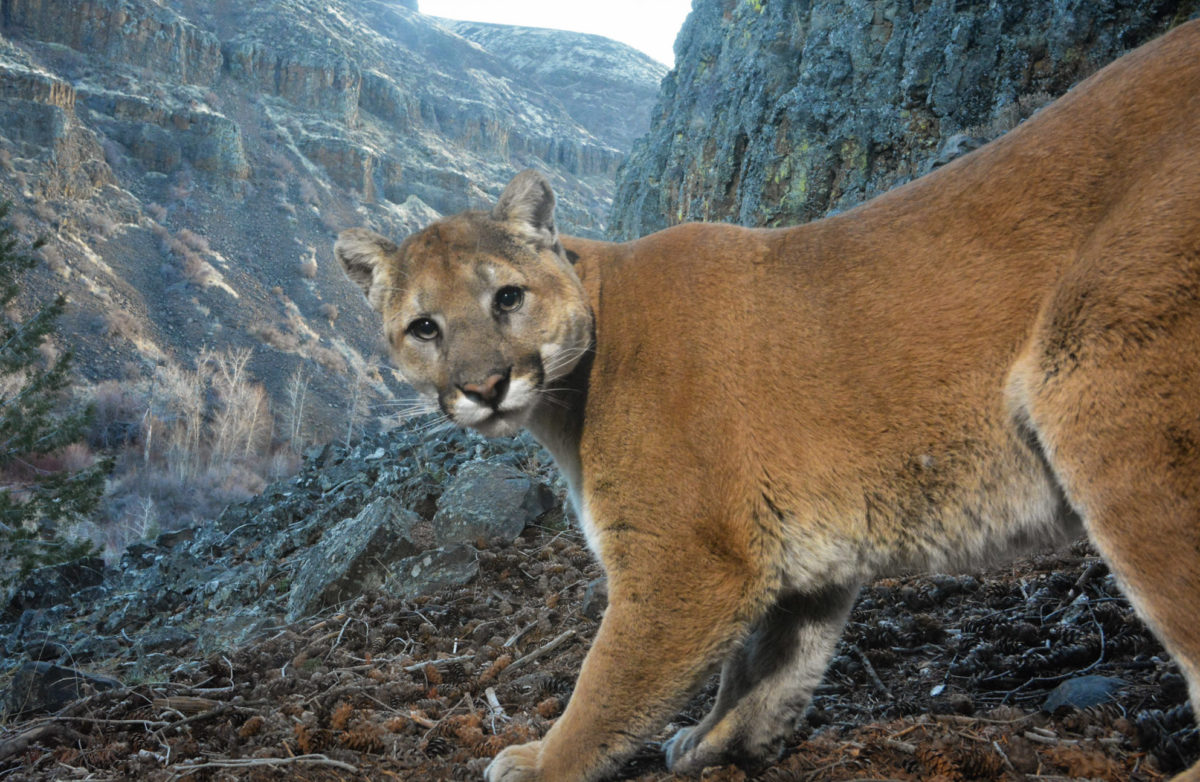
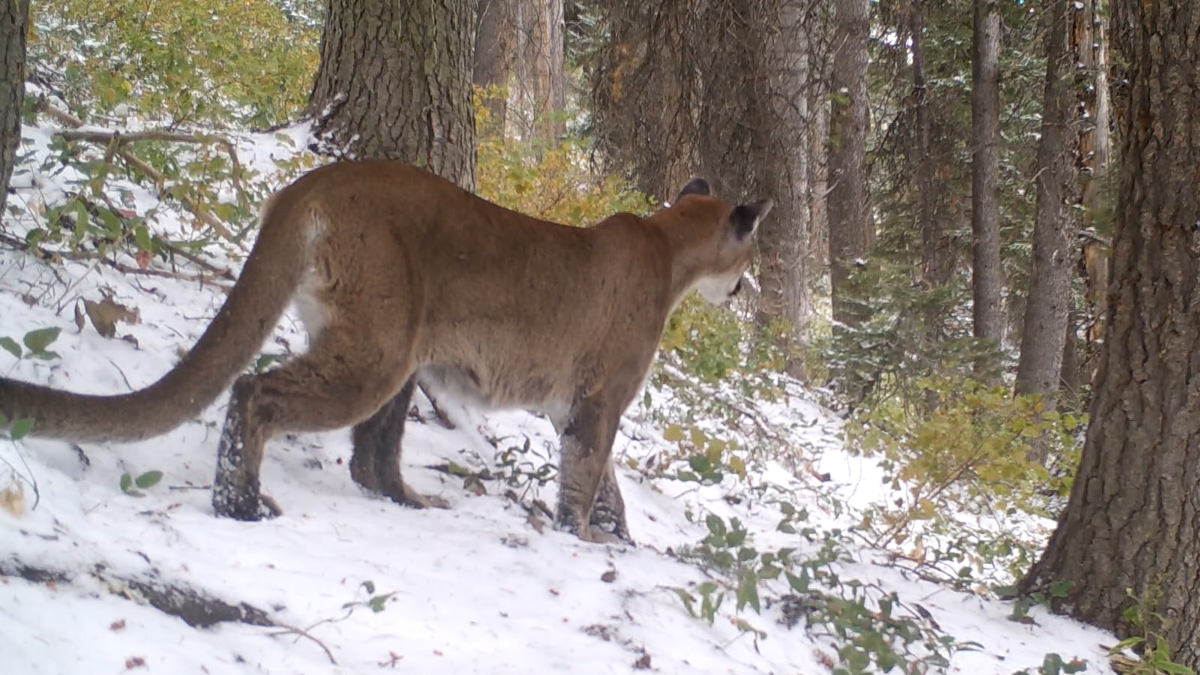
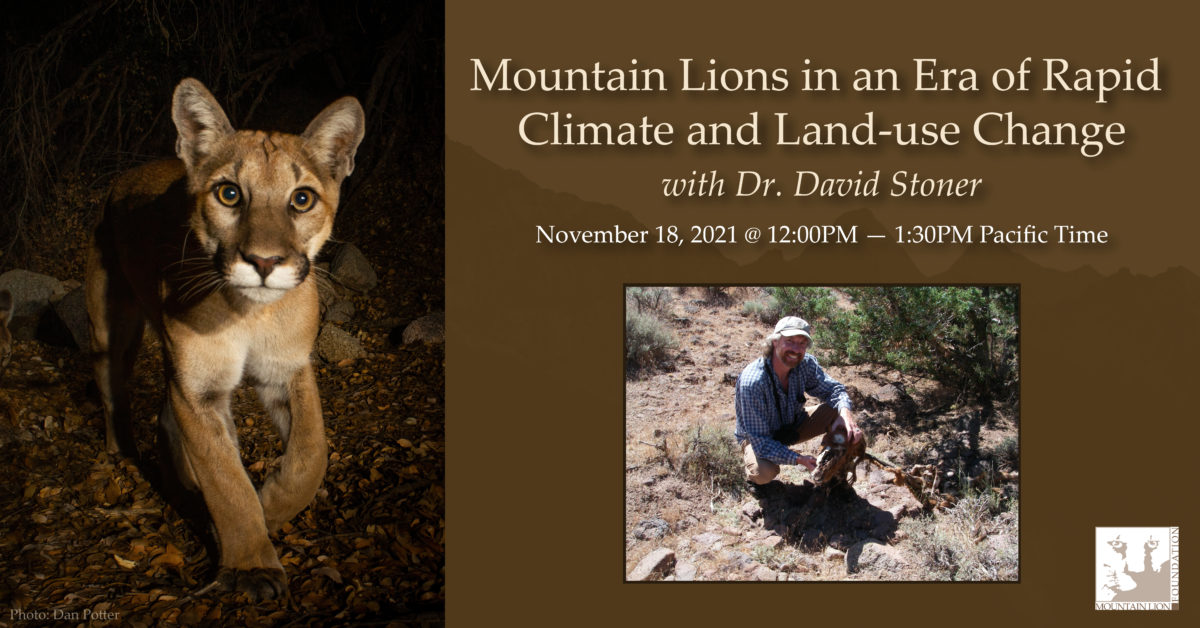
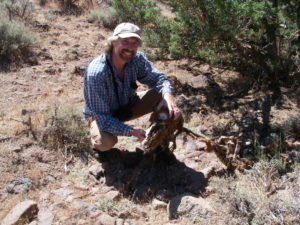 About Dr. David Stoner
About Dr. David Stoner